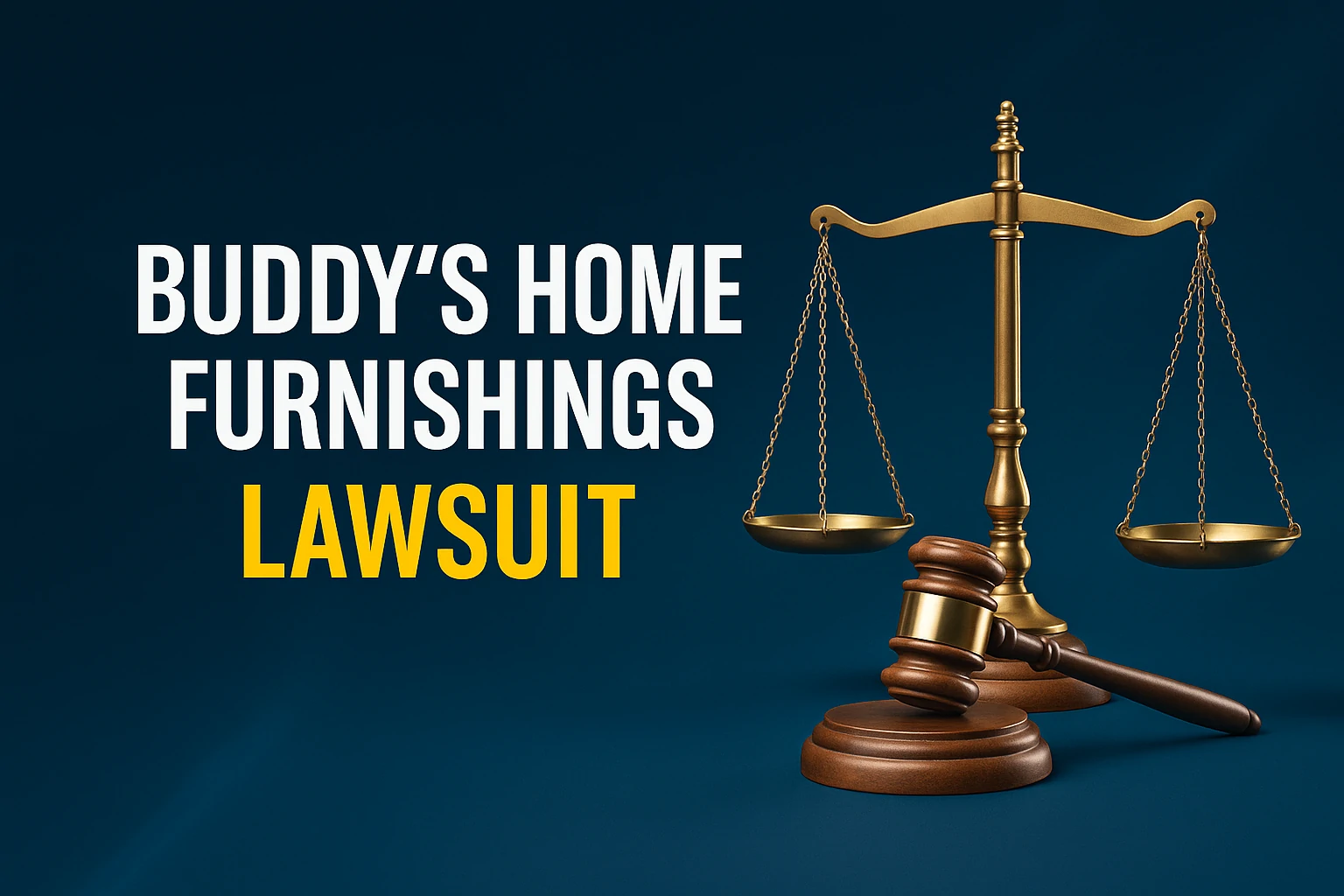Buddy’s Home Furnishings built its name on rent-to-own deals. It gives customers a way to get furniture and home items without paying full price up front. Most people pay week by week. If they finish all payments, they keep the item.
This sounds helpful. But legal problems began when the company ignored rules. One couple filed for bankruptcy. Buddy’s kept taking their money. A federal agency also said Buddy’s made secret deals that hurt competition.
These cases made headlines. They showed how rent-to-own stores can cross the line. Customers paid more than they expected. The court stepped in. The law took over.
This article breaks it all down. You will see what went wrong, what courts decided, and what it means for you.
How Much More Do Rent-to-Own Customers Pay?
Rent-to-own stores like Buddy’s advertise small weekly payments. These payments seem affordable. But over time, they add up fast. Many renters end up paying far more than the product’s original price.
The total cost often doubles the retail price-or even more. Customers don’t always notice this. They focus on short-term payments instead of the full amount.
Let’s look at how rent-to-own prices compare to regular store prices:
| Item | Store Price | Rent-to-Own Total | Extra Cost |
|---|---|---|---|
| Sofa | $600 | $1,200 | +$600 |
| Washer & Dryer | $700 | $1,450 | +$750 |
| TV | $500 | $1,100 | +$600 |
The extra cost comes from:
- High weekly rates
- Long contract lengths
- Added service or protection fees
- Restarts after missed payments
If you miss a payment, the company may reset your contract. That adds more time and more money. Some contracts include fees that renters don’t understand until it’s too late.
Before you sign anything, ask:
- What is the total cost from start to finish?
- Are there late fees or restart clauses?
- Can you return the item without penalty?
You may find a better deal by using layaway, buying used, or saving a little longer. Always compare your options. A lower weekly payment does not always mean a better price.
The Bankruptcy Case That Shocked the Industry
David and Kelly Springer rented furniture from Buddy’s. Then they filed for Chapter 13 bankruptcy. This type of case gives people time to pay debts through a court plan. It also stops companies from collecting money.
That pause is called an “automatic stay.” It blocks all calls, debits, or repossessions until the court gives the green light.
Buddy’s got notice of the case. But they kept pulling money from the couple’s account. They even sent people to take the furniture. That broke the law.
The court ruled against Buddy’s. The judge said the company acted on purpose. The couple won over $13,000. That included money taken after the filing, lawyer fees, and a penalty.
This ruling changed things. It told rent-to-own stores to follow the law. It told customers that courts will help them fight back.
What Bankruptcy Means for Renters
If you rent and file for bankruptcy, the rules change. The court takes over your payments. Companies must stop asking for money. They cannot take your stuff unless the court says so.
Some renters don’t know this. They keep paying because they feel scared. Some companies take advantage of that fear. That’s what happened in the Springer case.
The court also looked at the type of contract. Buddy’s called it a lease. But the judge said it looked more like a sale. That gave the court more power to protect the renters.
This case helps others. It sets a strong example. If you file bankruptcy, tell the rental company. If they still collect, they break the law.
FTC Steps In After Secret Deals

The Federal Trade Commission found another problem. They said Buddy’s made deals with other rent-to-own companies. These deals were not public. But they changed how stores opened and closed.
Here’s how it worked. Buddy’s shut down a store. Another company took over the contracts. Then that company shut a different store. Buddy’s took those contracts too.
They also agreed not to open stores near each other. That blocked competition. It made sure no one had to fight for business in those areas.
The FTC said this was wrong. It gave customers fewer choices. It raised prices. It hurt local markets. The FTC called it anti-competitive behavior.
Buddy’s settled the case. They did not admit guilt. But they agreed to stop these deals. They also had to train staff, create new policies, and follow strict rules going forward.
A similar case appeared with Power Home Remodeling Group, where customers also faced issues over contracts and business conduct.
What Secret Deals Do to Regular Shoppers
When big companies agree not to compete, shoppers lose. You may not see it at first. But you feel it when prices go up and choices go down.
Rent-to-own stores serve people with tight budgets. If two stores agree to stay out of each other’s way, one closes. Now you have only one store left. That store sets the price. You pay more.
These secret deals can kill fair markets. They hurt families who just want a couch or a fridge. They make it hard for new stores to grow. They make people feel trapped.
The FTC wanted to stop this pattern. The Buddy’s case sent a message to other companies: Play fair, or face the law.
Franchise Owners Push Back
In 2025, another fight broke out. The company that runs over 60 Buddy’s stores said the parent company changed the rules. They did not agree with the changes. They went to court.
This case is different. It is not about customers. It is about franchise owners. These are people who bought the right to run stores under the Buddy’s name.
They said the parent company broke promises. They asked the judge to protect their contracts. The court has not ruled yet.
This shows another layer of trouble. Buddy’s has legal problems with the public and inside its own network. That puts pressure on the whole system.
What Renters Can Do to Protect Themselves
If you rent from Buddy’s or any similar store, take steps to protect your rights:
- Read the full contract before you sign anything
- Track each payment and keep physical or digital receipts
- Save all texts, emails, and letters you receive from the store
- Speak to a lawyer right away if you file for bankruptcy
- Tell the rental company about your bankruptcy but do not let them keep charging you unless the court allows it
- Sue the company if they take money after your bankruptcy case begins
- Watch your local market-if stores close and no new ones open, it may be a sign of illegal deals
- Report unfair practices to the FTC or your state attorney general
- Stay informed and stay firm-you do not have to stay silent
How to Report Buddy’s to the Right Agency
If Buddy’s has taken money unfairly, broken a contract, or refused to follow bankruptcy rules, you can report them. You don’t need a lawyer to speak up. Many agencies accept complaints online. The process is simple and safe.
Here are the best places to file a report:
- Federal Trade Commission (FTC)
The FTC handles complaints about unfair business practices. This includes secret deals or blocked competition.
➤ https://reportfraud.ftc.gov - State Attorney General’s Office
Every state has an attorney general who protects consumers. You can file a local complaint if you feel cheated or misled.
➤ Find yours: https://www.usa.gov/state-attorney-general - Consumer Financial Protection Bureau (CFPB)
The CFPB helps people with money-related problems, including contract issues and debt collection.
➤ File here: https://www.consumerfinance.gov/complaint/ - Legal Aid Services
If you need free legal help, many nonprofits support renters. You can find a lawyer in your area through the Legal Services Corporation.
➤ Start here: https://www.lsc.gov/what-legal-aid/find-legal-aid
Before reporting, collect your documents:
- Your rental agreement
- Payment records or bank statements
- Screenshots of texts, emails, or voicemails
- Any court filings if you filed bankruptcy
Write out what happened using dates, amounts, and facts. Keep it simple. Avoid emotion. You are more likely to get help if your report is clear and direct.
Filing a complaint does more than help your case. It warns others. It alerts investigators. It can stop future harm. If enough people report the same issue, the government will act.
What Business Owners Must Learn
Business owners in the rent-to-own space need to take this case seriously. It proves that the law does not look the other way. Even one mistake can lead to large fines and bad publicity.
If a customer files for bankruptcy, pause all collection activity. Do not call. Do not withdraw money. Do not send staff to repossess property. Wait for the court to act. Respect the process.
Do not make deals with competitors to close stores or block entry into new areas. Even if it seems private, that deal can be illegal. The FTC has eyes everywhere. And the public has the right to fair markets.
Update your contracts. Make all fees clear. Show the full cost of each product over time. Train your staff. Work with legal advisors. One lawsuit can undo years of success.
Buddy’s Lawsuit Timeline: Key Dates
| Date | Event |
|---|---|
| October 2015 | David and Kelly Springer filed for Chapter 13 bankruptcy. |
| Late 2015 – 2016 | Buddy’s kept taking payments and sent workers to take back furniture. |
| 2017 | Court ruled Buddy’s broke the law. It ordered them to pay $13,000+. |
| 2015 – 2018 | Buddy’s made private deals with competitors to avoid store competition. |
| 2019 | FTC filed a complaint for anti-competitive practices. |
| 2020 | Buddy’s settled with the FTC. It agreed to stop secret deals. |
| 2025 | Franchise group sued Buddy’s over sudden contract changes. |
Final Thoughts
Buddy’s Home Furnishings started with a simple idea. It wanted to help people get what they needed without paying full price upfront. The goal seemed helpful. But the way the company ran its contracts and collections caused major harm.
The bankruptcy showed what happens when a company ignores legal limits. The FTC stepped in to stop unfair deals. The case revealed how some rent-to-own models blur the line between fair business and financial traps.
Customers learned how to stand up for their rights. Courts took notice. So did watchdog groups. Buddy’s had no choice but to change. Its brand took a hit, and trust faded fast.
This story is not just about one company. It sends a clear warning to others in the same space. Treat people with fairness. Follow the rules. Respect the deal you make with every customer.
That is the only way forward. Anything else leads to the same kind of fall.
People Also Ask
Q. What led to the Buddy’s Home Furnishings bankruptcy?
The company struggled with rising debts, legal battles, and customer complaints. These issues pushed it to file for bankruptcy and close many locations.
Q. Did the FTC take action against Buddy’s?
The FTC sued Buddy’s over shady contracts and unfair charges. The agency said the company misled customers and used tactics that broke consumer protection rules.
Q. Can customers get their money back after the lawsuit?
Some customers may qualify for refunds through settlements or court orders. Others might file claims during the bankruptcy process, but payments are not guaranteed.
Q. Is Buddy’s still in business today?
Some stores remain open under different management. The brand still exists, but it operates on a smaller scale after legal and financial setbacks.
Q. What should renters learn from this case?
Renters should read contracts closely and ask about total costs. This case shows why it matters to know your rights before signing any rent-to-own deal.
Q. Does this lawsuit affect other rent-to-own companies?
It may lead to stricter rules and better oversight across the industry. Other companies could change their practices to avoid the same legal trouble.
This article is for general information only. It does not offer legal advice. Always speak with a qualified attorney about your specific situation. YourRights360.com does not guarantee the accuracy of third-party claims or lawsuit outcomes.




